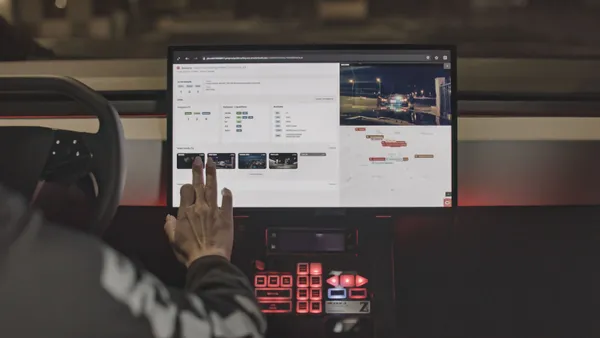Dive Brief:
- The Atlanta Police Department lost years of police cruiser dashcam footage in its March cyberattack, and the footage cannot be recovered, Police Chief Erika Shields told The Atlanta Journal-Constitution.
- Despite the compromised dashcam video, Shields says the department has not lost access to crucial evidence or any files related to investigations.
- The cyberattack only affected dashcam footage and not other sources of video evidence like police body cameras. The affected files were limited to those on only one investigator's computer.
Dive Insight:
Atlanta was subject to a ransomware attack, and the city did not pay the money requested for hackers to release their grip on the system. The event affected the city and residents, and it took weeks for the city to regain control of its technical infrastructure.
Chief Shields minimized the effect of losing "years" worth of dashcam video and claimed it will not affect the outcome of cases because the department has plenty of other pieces of evidence to back up cases. She did, however, admit that DUI cases could be affected if a police officer's testimony isn't enough for some reason.
Despite the chief's assurances, doubts circulate about her claims that the incident largely won't affect ongoing cases. Especially in a climate when police-involved altercations arrive, dashcam video might be the only strong evidence to corroborate claims from either an officer or a suspect. An example of a case that has the potential to be affected is one in which some of the missing video showed a police sting on a former employee who was fired for allegedly destroying an open records request. The chief said other evidence supports the employee's firing. However, that case is being appealed and losing a prime piece of video could affect its outcome.
A bright side for the department is that the hack only affected one investigator's computer and didn't wipe the entire department's dashcam video archive. Plus, none of the investigator's criminal case files were lost because they were on the city's servers. The downside is that the one computer contained a whopping 105,000 files that were compromised.
The ransomware attack is a harsh reminder to back up valuable computer files and to have a cybersecurity plan in place. Those are both practices that a lot of cities are not well versed in, especially not to the widespread level necessary to protect an entire municipality's system and information. Atlanta Mayor Keisha Lance Bottoms addressed the topic last month at the Smart Cities New York conference, noting that her city previously hadn't made cybersecurity a priority, but that all changed in an instant. Now she considers it something that "all mayors and cities need to have top of mind."
The cybersecurity space is experiencing rapid growth and presents opportunities for cities to upgrade existing systems with new, more secure options. Blockchain-based systems, for example, provide extra encryption and security measures and they have yet to be hacked. Some municipalities are dabbling with blockchain — like South Burlington, VT trying a pilot program for property records — but few have incorporated it or even know where to start. The technology holds a lot of promise for local governments in a plethora of fields, such as record storage, voting, parking management and supply chain management through smart contracts.











